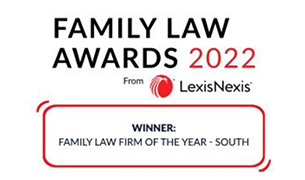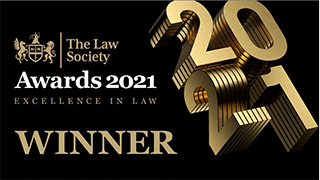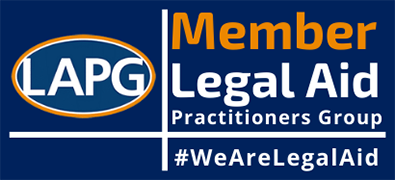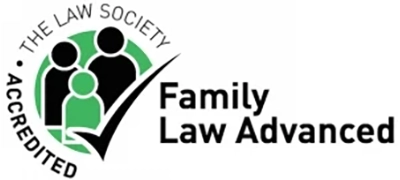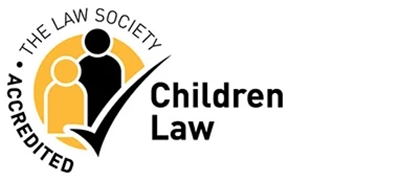Glossary Content
-
-
Adoption Order: To make an adoption legal, there needs to be an application for an adoption court order. This gives the client parental rights and responsibilities for the child. The child must have lived with the client for at least 10 weeks before you apply. Once the order has been granted: the adoption becomes permanent.
-
Advocacy file: This is where records of Hearings (these are documents called Check 13s) and draft Orders are kept.
-
-
-
Brief: This is a document containing the instructions and information about a case. These get sent to Barristers/Counsel when we instruct them to do a Hearing.
-
-
-
C100 Form: A C100 form is how a client applies for a court order to make arrangements for a child or resolve a dispute about their upbringing.
-
Care Order: A care order is given by a court. It allows a council to take a child into care. A council can apply for a care order if it believes a child is suffering or at risk of suffering significant harm. The court decides if the child can be taken into care.
-
Child Maintenance (CM): Child maintenance is regular financial support that helps pay everyday living costs of bringing up a child when parents are separated. It's for children who are under 16 or under 20 and still in full-time education not higher than A-Level.
-
Child Protection Plan: A Child Protection Plan is made when a child is judged to be at risk of significant harm, significant harm being a level of harm that affects the health, welfare and development of a child. The Plan will say what the specific risks are to the child and the actions that will be needed to keep the child safe.
-
Children and Family Court Advisory and Support Service (CAFCASS): CAFCASS represent children in family court cases in England. They independently advise the family courts about what is safe for the child. CAFCASS put the child's needs, wishes and feelings first, making sure that the child's voice is heard.
-
Conditional Order: A conditional order is a document that says the court does not see any reason why you cannot end the civil partnership. If the partner does not agree to end the civil partnership, the client can still apply for a conditional order.
-
Correspondence File: This is a file where all emails and letters between the parties are kept.
-
Counsel: This is a Barrister. Solicitors will instruct Barristers when they cannot cover Hearings in-house.
-
-
-
Deed of trust/Declaration of trust: A Deed of Trust, or Declaration of Trust, is used to record the financial arrangements of those who own a property together, or who have a financial interest in the property
-
Domestic abuse (DA) / Domestic violence (DV): We define domestic abuse as an incident or pattern of incidents of controlling, coercive, threatening, degrading and violent behaviour, including sexual violence, in the majority of cases by a partner or ex-partner, but also by a family member or carer.
-
-
-
Emergency protection order (EPO): An Emergency Protection Order (also called an EPO) is an urgent order granted by the Court if the local authority has satisfied the court that a child is in immediate need of protection from significant harm or a risk of significant harm. These types of applications are usually issued by a local authority.
-
-
-
Fact Finding Hearing: If one party makes allegations during family law proceedings and the other party denies the allegations, the judge will consider whether there should be a fact-finding hearing. This is a special hearing which is arranged just to decide whether or not the allegations are true.
-
Financial order: A financial order is a type of Court Order which details how a client, and their ex-spouse will deal with your finances upon divorce. Once they have obtained a financial order from a court, the arrangements detailed in it are legally binding.
-
Free Half Hour (FHH): A free 30-minute initial appointment to discuss options and legal fees.
-
-
-
Hearing: This is the time allocated by the Court where a Judge will listen to the information about a case and make a decision. This is where the parties can attend with their legal representatives.
-
-
-
In contempt of court: Contempt of court' happens when someone risks unfairly influencing a court case. It may stop somebody from getting a fair trial and can affect a trial's outcome. Contempt of court includes: disobeying or ignoring a court order.
-
Independent reviewing officer (IRO): Monitors the care the child is getting when they are looked after. This includes making sure the child's care plan meets their child's current needs. And making sure decisions following the child's review are put into action.
-
Initial child protection case conference (ICPCC): The only decisions a conference can make is whether a child needs a Child Protection Plan and if so the name of the key worker. If the child is felt to need a Child Protection Plan the conference will recommend what sort of help the family may need to make sure that the child is safe.
-
Initial child protection case conference (ICPCC): The only decisions a conference can make is whether a child needs a Child Protection Plan and if so the name of the key worker. If the child is felt to need a Child Protection Plan the conference will recommend what sort of help the family may need to make sure that the child is safe.
-
Instruct: This is when you ask a Solicitor/Barrister to act for you. This is basically telling them what you are expecting them to do.
-
Interim care order (ICO): At the start of care proceedings, the council asks the family court to make a temporary court order, called an 'interim care order'. If the court agrees, the council can take the child into care on a temporary basis.
-
Interim child arrangements order (ICAO): This is a temporary order, put in place for example to return the child to the care of one parent or to make sure some contact is taking place, while further court hearings take place.
-
Interim supervision order (ISO): The court can consider whether to make an Interim Supervision Order which places the child temporarily under the supervision of the local authority until the court can make a final decision about what is best for the child.
-
-
-
Legal Aid (LA/LAA): Legal aid is the use of public funds to help to pay for legal advice, family mediation and court or tribunal representation.
-
Litigant in Person (LIP): Someone who is representing themselves in a case with no lawyer support.
-
-
-
Mediation: Mediation is a way of sorting any differences between you and your ex-partner, with the help of a third party who won't take sides. This third party is called a mediator. They can help clients reach an agreement about issues with money, property or children. Clients can attempt mediation before going to a solicitor.
-
Mediation Information Assessment Meeting (MIAM): Mediation Information Assessment Meeting (MIAM) Before an application can be made to court, in some circumstances clients are required to attend a Mediation Information Assessment Meeting (MIAM). The aim of a MIAM is to see if mediation could be used to resolve their difficulties, rather than going to court. Should mediation not be applicable or mediation is attempted and parties are not able to reach an agreement, the mediator will provide the client with MIAM sign off paperwork which can be shown to the judge in an application to court. These papers are only valid for 4months after being signed.
-
Ministry of justice (MOJ): MOJ are responsible for criminal justice, prison and probation services, civil courts, tribunals and family law hearings, safeguarding victims and regulating our legal services.
-
-
-
Non-Molestation Order (Non-Mol/NMSO): A non-molestation order is aimed at preventing a partner, ex-partner or family member from using or threatening violence against a party or their child, or intimidating, harassing or pestering, in order to ensure the health, safety and well-being of our client and their children.
-
-
-
Occupation order: Occupation orders are orders made by the courts to enforce, declare or restrict rights to occupy the matrimonial home. They are only a short-term solution and will not affect what happens to the property in the final settlement.
-
Office Procedures Manual (OPM): A procedure manual, also known as a policy and procedure manual, is a resource for employees that establishes guidelines and protocols for all the major principles, actions and decisions of a department or organization.
-
-
-
Parental responsibilities (PR): Parental responsibility means the legal rights, duties, powers, responsibilities and authority a parent has for a child and the child's property. A person who has parental responsibility for a child has the right to make decisions about their care and upbringing.
-
Parties: These are the sides to a Court case. They will be stated at the top of all official Court documents.
-
Placement order: This is the legal ruling made by the courts which authorises a Local Authority to place a child with approved prospective adoptive parents.
-
Pleadings: The legal documents of a case e.g. statements, orders, applications etc.
-
Police Protection: If a child is believed to be at risk of significant harm, they can be removed from their home and placed under police protection for up to 72 hours in a safe location, under the Children Act 1989. This is an emergency and temporary measure, and no court order is required.
-
Post nup/postnuptial: A Post-nuptial Agreement, or 'postnup', is a contract agreed upon by a married couple which stipulates how their money and assets will be divided up, should their marriage end in divorce.
-
Pre nup/Prenuptial: A prenuptial agreement (or prenup) is a legal agreement that sets out how assets should be divided between a couple in the event of a divorce. This legal contract is entered into before marriage (at least 28 days prior to the wedding), unlike a postnuptial agreement – At TFLC we suggest extending that to 3 months to complete and draw up the pre-nup
-
Prohibited steps order (PSO): A prohibited steps order is a legally binding order that prohibits someone (usually a parent) from exercising some elements of their parental responsibility.
-
Public law outline/Pre-Proceedings Meeting (PLO): The Public Law Outline (PLO) sets out the duties Local Authorities have when thinking about taking a case to court to ask for a Care Order to take a child into care or for a Supervision Order to be made. This is often described as initiating public law care proceedings.
-
-
-
Safeguarding officer (SO): A safeguarding officer ensures that all the necessary steps are being taken to protect the people that they work with and support, providing an essential point of contact between child protection authorities and the organisations that their regulations apply to.
-
Section 20 (S20): Section 20 agreements allow the local authority to remove a child and place them in foster care without the need for a court order. Whether or not to enter into a section 20 agreement is a voluntary decision made by the parents with the local authority.
-
Social Services/Social worker (SS/LHA): Social services have a statutory obligation to safeguard and promote the welfare of vulnerable children and adults and can provide a wide range of services to children and their parents, usually within the own home environment and co-ordinated by a social worker.
-
Solicitors Accounts Rules (SAR): The SAR stipulates that a solicitor and a firm must: Protect client money and assets. Act with integrity. Behave in a way that maintains the trust the public places in the solicitor and in the provision of legal services.
-
Special Guardianship Order (SGO): Special guardianship is a court order which allows parental control over a child by individuals other than the parent. They are usually made to members of the extended birth family or other significant people, such as a child's long term foster carer.
-
Supervision Order: A Supervision Order imposes a duty on the local authority to 'advise, assist and befriend' the child. It may require a child to live in a specified place, do certain activities and report to a particular place at a set time.
-
Suspended enforcement order: An enforcement order or suspended enforcement order is an order for compensation for financial loss if the court is satisfied the applicant has suffered a financial loss due to the breach.
-
-
-
Tenants in common (TIC): Tenancy in Common (TIC) is a legal arrangement in which two or more parties have ownership interests in a property. Tenants in common can own different percentages of the property. Tenants in common can bequeath their share of the property to a named beneficiary upon their death.
-
The Legal Ombudsman (LeO): Investigates complaints about the service a client has received from us as a legal service provider.
-
The Trusts of Land and Appointment of Trustees Act (TOLATA): The Trusts of Land and Appointment of Trustees Act (TOLATA) gives the Court power to make decisions where there are property disputes between unmarried couples. The Court can make decisions on the ownership of a property.
-
-
-
Universal credit (UC): Universal Credit is a payment for people over 18 but under State Pension age who are on a low income or out of work. It includes support for the cost of housing, children and childcare, and financial support for people with disabilities, carers and people too ill to work.
-
-
-
Voluntary accommodation: Accommodation provided by a local authority for children whose parents are temporarily unable to look after them or for children who have been abandoned. (It is important to distinguish between a child who is being accommodated by a local authority and a child who is the subject of a care order.)
-
Our Awards and Accreditations
Would you like to speak to someone?
Find out how to get in touch...



